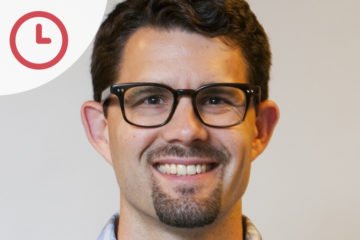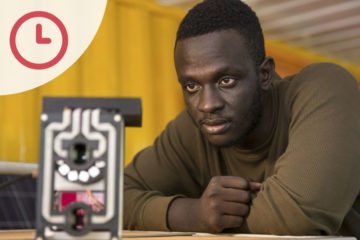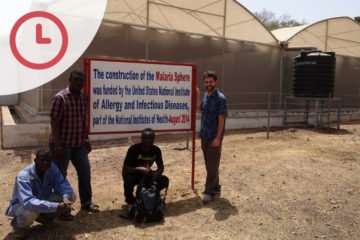Podcast Available on iTunes and Spotify.
Welcome back.
Access to healthcare in some remote parts of Africa can be extremely limited, with the nearest health facility located hours away. For mothers of children with severe malaria, this can put their child’s life at risk. But now a London-based international organisation is trying to change that. Transaid is using bikes in remote villages to transport patients to hospitals and health facilities.
On the line now are Florence Bearman, Head of Fundraising, and Kim van der Weijde, the Access to Health Project Manager.
Kim, Florence, thanks for joining me.
[FLORENCE BEARMAN]: Not at all, thank you for inviting us.
A lot of this work that you’ve been doing has been done in Zambia, tell me about your work there.
[FLORENCE BEARMAN]: So Transaid has actually been working in Zambia for most of the last eight years. Previous to the last year, it’s been focusing on access to health care around pregnant women, getting to health facilities when they go into labour and when they need access to health care most. The project that we’ve been working on for the last year has been called ‘Mamas Against Malaria’ and that’s almost been a bolt-on to the original project working with many of the same communities and many people who have been volunteering there with a malaria focus. In Serenje District, which is the area that we’ve been working in Zambia, had one of the highest malaria rates, and this project tackles severe malaria in the under 6s.
A Note from Transaid:
MAMaZ Against Malaria is delivered by a consortium of partners – Transaid, Medicines for Malaria Venture (MMV), Development Data, Disacare and Health Partners Zambia working in partnership with the District Health Management Team and the National Malaria Elimination Centre.
And have you been using bikes as a method of transportation in both projects?
[FLORENCE BEARMAN]: Both projects have used bicycle ambulances, but these bicycle ambulances have been modified slightly so that they are able to fit both the child and the parent onto the back of the bicycle on a trailer.
And before you guys came along with this, I guess, novel idea of using bikes as a method of transport, how did the mother and the child get to the health facility?
[FLORENCE BEARMAN]: In some cases, people just won’t go at all because they saw it as a threat to their safety or just too difficult. In other cases, they would walk or they would find some kind of stretcher or perhaps just an ordinary bicycle and travel with the child on the back of that, but that often worsens the case of the child or the pregnant woman so, by the time they reach the health facility, they’re in a worse medical situation then they would’ve been.
And for how long have you been using bikes to transport mothers and children?
[FLORENCE BEARMAN]: It’s something that we’ve been using for about 10 years and we’ve done it in a couple of other countries as well. Zambia is where we’ve done it the most and the results have been fantastic and we can definitely see that this really works as an intervention.
You mention results there, what sort of results have you seen with this project?
[KIM VAN DE WIEJER]: The project has been really successful so far in that it’s actually decreased the case fatality rate for severe malaria by about 96% and this is then comparing the case fatality rate that we saw prior to the intervention and then the case fatality rate that was reflected after the intervention. And just to note on that, that there was also a lot of more of severe malaria cases identified during the project than we had identified in the baseline. We account this to the fact that there was more awareness around severe malaria and the danger signs as well as better case reporting that was done at both a community and a health facility level.
And this work that you’ve been doing has been done in Serenje District of Zambia. Do you think funding wise, you’ll be able to expand this project into other districts?
[KIM VAN DE WIEJER]: We have high hopes that this project will be expanded both by local authorities as well by potentially expanding the project. We are currently working to seek more funding for a second phase of the project, which we should have confirmation on really soon if we did or did not receive this funding. There has been a lot of key learning from this project that is very relevant for the Ministry of Health and the National Malaria Elimination Centre that they can use in their own programs to increase both awareness and the case management around severe malaria.
Florence Bamyan and Kim Van De Wieje of Transaid, thank you very much.
[FLORENCE BEARMAN]: Thank you
For more information on their work, head to Transaid.org


